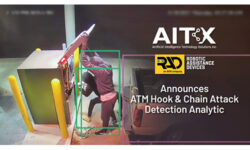Security Stocks Rebound in 2016
Overall, publicly traded security companies rebounded in 2016 to post an estimated gain in excess of 7 percentage points over the prior year when returns dipped into the red.

SSI's annual overview of industry stocks and market analysis dives headlong into current trends and challenges shaping the industry landscape.
The overall stock market performance in 2016 might best be described as something akin to a wild ride, marked by precipitous drops and thrilling gains.
The year started out with difficult circumstances as collapsing oil prices and concerns over China’s slumping economy resulted in Wall Street’s worst-ever opening to a year.
Those investors who buckled in for the long haul, however, were rewarded handsomely nevertheless.
The Dow Jones Industrial Average closed the year by advancing more than 4,300 points above its January low of 15,451 – approaching within .1% of the milestone level of 20,000.
This was fueled by a postelection surge as investors are wagering President Trump will spur economic growth by pressing forward on policies such as massive corporate tax cuts and deregulation.
In the end, all three major indexes posted strong gains in 2016. The Dow was up 13.4%; the S&P gained 9.5%; and the NASDAQ was up 7.5%. That comes on the heels of both the Dow and S&P 500 posting slight losses in 2015.
By comparison, publicly-traded companies in the physical and electronic security industry did not suffer the same whiplash experienced elsewhere on Wall Street.
Following a relatively flat 2015, the Physical and ID Security group of 45 securities tracked by Imperial Capital rebounded with gains exceeding 7%. So, while the broader market advanced on security in 2016, security continued its trend of outpacing the major indexes over the past 10 years.
Based on an in-depth interview with Imperial Capital Managing Director Jeff Kessler, one of the industry’s foremost experts, Security Sales & Integration‘s annual industry financial analysis examines just some of the trends that impacted the performance of various security sectors in 2016.
We’ll also review a group of public consumer electronics companies, plus related security stocks, which outperformed the Dow by 9 percentage points.
Wireless Making Waves in Access
In 2016, investors witnessed steady – not spectacular – growth in the leading lock companies. This marks three consecutive years of 2% to 4% organic growth to go along with continued consolidation in the sector.
Although the access control industry can’t match the unit growth of video surveillance or video surveillance as a service (VSaaS), it is not affected by the relentless price discounting on products coming out of Asia that is slowing revenue growth below 10%.
All told, the broader access control industry – from panels and ID cards, to all forms of locks, mobile credentialing and even doors – is estimated by Imperial Capital to total roughly $24 billion globally at the manufacturing level.
The consistent growth seen in access control is being maintained not so much in mechanical locks, but rather by new drivers that Imperial Capital projects could help the sector achieve 5% growth overall.
Wireless networked locks, mobile credentials using biometrics, and Cloud-based systems are expected to be important drivers for many years to come.
Networked wireless systems are growing organically in the low double digits, yet remain a small portion of the overall market. This area accounts for less than 10% of all systems currently deployed, and less than 50% of new systems being sold.
Still, growth in networked wireless systems is much faster than conventional mechanical locks.
Despite the upward trajectory of the overall access control market, stock prices for publicly-traded companies were essentially flat in 2016, following strong market growth in 2015 when EBITDA valuations ranged in the low to mid-teens against organic growth rates of 2%-4%.
Allegion is currently considered the fastest organic growth company among the three largest lock and access control firms, which includes global leader ASSA ABLOY and dormakaba.
Allegion’s recent success is due, in part, to wireless residential locks sold into the U.S. market, and for being the first vendor to sell wireless networked replacement locks to the small and medium business (SMB) market.
ASSA ABLOY answered with similar SMB products in the second half of 2016, but lagged behind Allegion by almost a year. dormakaba began hoisting itself into a top three global position in 2015 following the merger agreement between Dorma Holding and Kaba.
The combined company followed that up with two significant acquisitions at the end of last year – Mesker Openings Group for $142.5 million and the Stanley Black & Decker commercial locks business for $725 million.
Although it trades very little, dormakaba’s stock rose significantly during the course of the past year.
Access control as a service (ACaaS), although it remains a small piece of the pie, is finally experiencing a significant breakout. Imperial Capital projects this subsector going forward will be a consistent growth area.
Indeed, market research firm Technavio forecasts the global ACaaS market to grow at a compound annual growth rate (CAGR) of 24.6% during the period 2016-2020.
For the first time the market is gaining acceptance of the technology in large part because integrators finally understand how to install and service the systems, without cost overruns and without constant callbacks.
SMBs with no in-house IT expertise are accounting for the ACaaS growth. Large enterprises, with long sales cycles and a reluctance to allow critical data into the Cloud, continue to lag behind the SMB market.
Instead, hybrid solutions are beginning to develop at larger companies where IT departments are willing to give up some types of permissions and other types of access capability to the Cloud that doesn’t involve large IT data bases.
Guard Firms Transform Into Tech Providers
One of the significant transformations taking placing in the commercial realm of security focuses on traditional guarding and cash-in-transit firms bringing on technology, sometimes by acquisition, to create multiservice security companies.
A chief example of this is G4S, which has owned security management systems provider AMAG Technology for years but is now being leveraged with other acquisitions and internal developments to generate significant technology capabilities.
These include identity and analytical capabilities for companies using guarding services that go well beyond the security guard making decisions as to whether action needs to be taken or not.
Other examples include Securitas and privately held Allied Universal, which was created in the May 2016 merger of AlliedBarton Security Services and Universal Services of America.
Both Securitas and Allied Universal have acquired integration companies that either specialize in some technology niche or other vertical market specialty.
In early 2016, Securitas finalized its previously announced acquisition of Diebold’s security business for approximately $350 million. Securitas’ burgeoning integration capabilities have become an attention-grabbing presence given the company operates 13 monitoring stations around Europe.
On the commercial side they will be using the Diebold electronic security businesses in the U.S. and eventually Europe. On the residential side, Securitas is partnering with Alarm.com in Europe.
Steady revenue growth is projected for these multiserv
ice firms as the value proposition of control centers and monitoring become much more important to these formally pure commodity and price-driven companies.
That fact is being manifested in positive stock price trajectories for companies like G4S, which reported higher revenue growth in its third quarter helped by a stronger performance in the U.S.
The company has been working to stem the cost of resolving a string of controversies, including the loss of an Australian government deal for running an asylum-seeker detention center, as it lets unprofitable contracts expire and reduces debt by cutting spending and selling assets.
Read on to learn about the swelling residential market and for a peek of our stock chart.
If you enjoyed this article and want to receive more valuable industry content like this, click here to sign up for our FREE digital newsletters!

Security Is Our Business, Too
For professionals who recommend, buy and install all types of electronic security equipment, a free subscription to Commercial Integrator + Security Sales & Integration is like having a consultant on call. You’ll find an ideal balance of technology and business coverage, with installation tips and techniques for products and updates on how to add to your bottom line.
A FREE subscription to the top resource for security and integration industry will prove to be invaluable.








